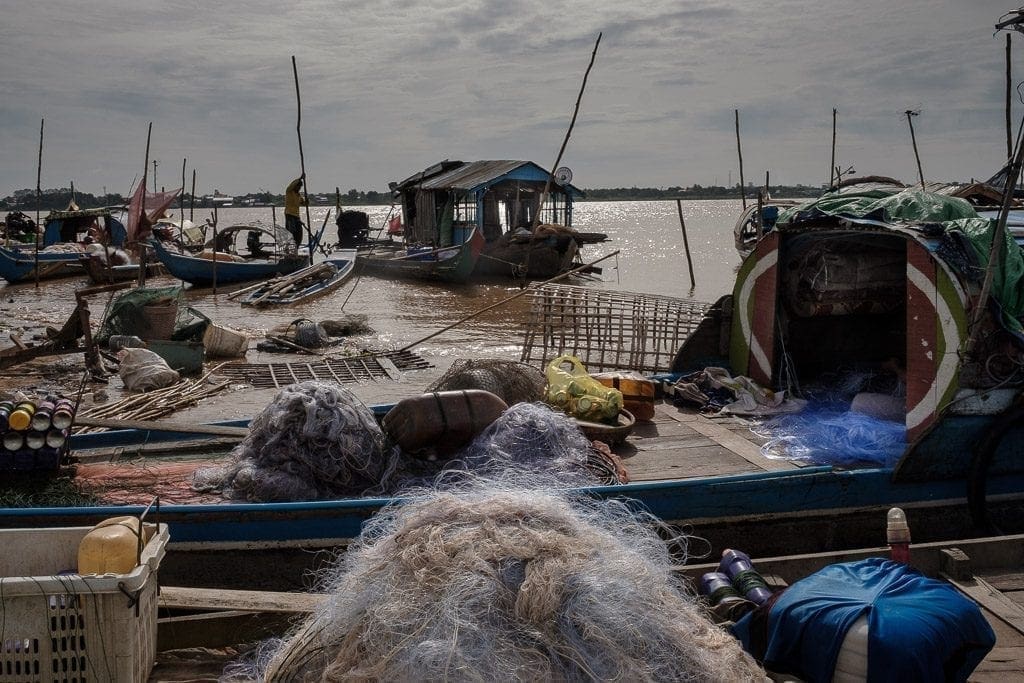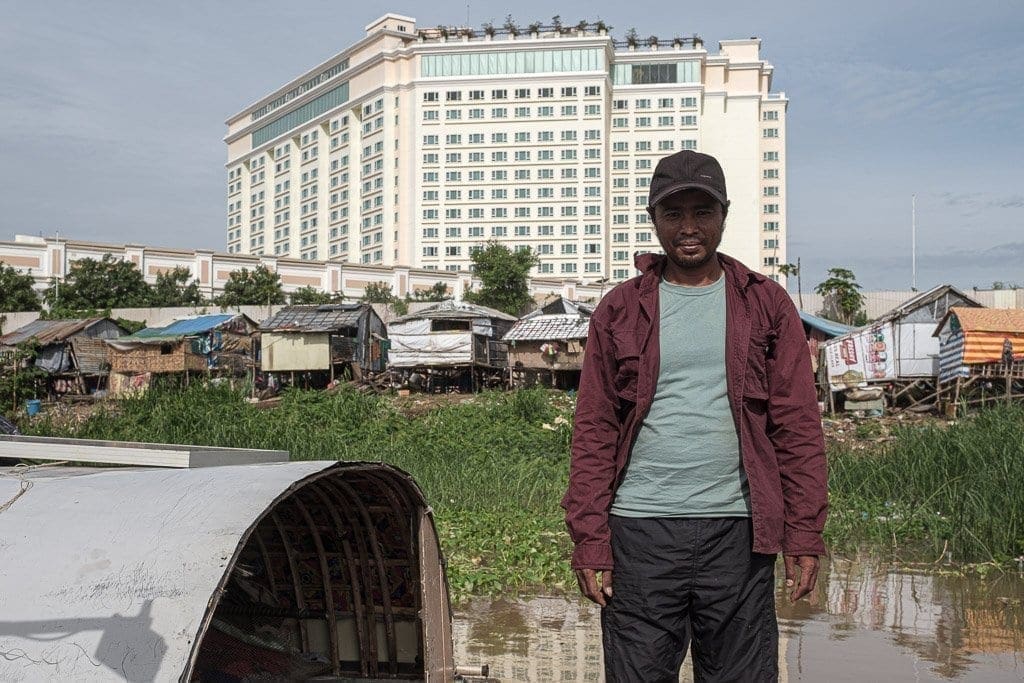Cambodia Journals | Phnom Penh, 26 August 2019
The Sokha Hotel has something arrogant, majestic, exquisitely Asian about it.
Worth a hundred million dollars, the monolith stands immense south of the Chroy Changvar Peninsula in Phnom Penh.
There is no obvious reason to go to that part of the peninsula-located between the junction of the Tonle Sap River and the Mekong-unless you want to get right up to the Sokhi.
But hardly anyone goes there, and its luxurious rooms remain mostly empty.
There may be no obvious reason, but beneath the skyline of the majestic hotel stands Pum Cham, an ethnic Cham Muslim village that escaped genocide by the Khmer Rouge more than 40 years ago.
This village on the banks of the Mekong consists of about 250 families. Lacking all government support and assistance, with no schools or health centres, these Cham men are skilled fishermen and, in addition to fish, essential for their livelihood, they collect from the muddy waters of the river whatever comes from the northern provinces: from rubbish to tree trunks.
This work in Cambodia aims to discover that part of the country that does not find space in tourist guides. The one away from the temples of Angkor Wat or the Tonle Sap. The Cham ethnic group is part of the programme and getting to know the Pum Cham community prepared us for the stop in Kampong Cham, where the largest Muslim community in the country resides

The village of Pum Cham
We arrived early in the morning, partly to enjoy the good light, to devote as much time as possible to the village. We did not yet know what we would find, or if they would be available.
The first impression I had was a kind of déjà vu: seeing the situation of the village, the dilapidated shacks on stilts facing the river waters and the moored boats that also serve as a home, my mind immediately took me back to the Andaman Sea and the mysterious Moken, sought out and encountered on the island of Koh Phayam, Thailand, two years ago.
A feeling that disappeared in an instant, however, because the Cham have a completely different history, and the reasons for this Muslim community being relegated to the edges of a city that wants to be glitzy, is certainly not to be found in anthropological reasons but in purely political ones.
A whole day spent among: playful and half-naked children, friendly and smiling women with their heads covered, hospitable and curious men, and elderly people with a dignity furrowed in their faces.
Simple Human Beings who were meeting and conversing with other Human Beings.
The Sokimex Group, the owner of the Sokhi Hotel, has long been cracking down on the Pum Cham community by all methods, political and police, to drive them out of that portion of the river right under the south windows of the hotel.


